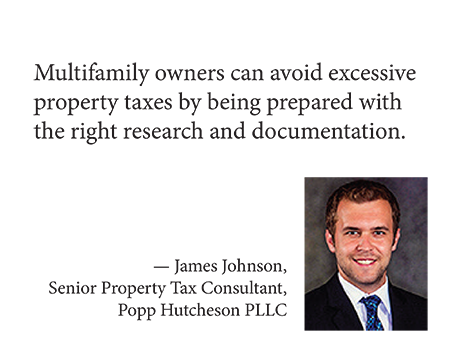— By Lynn Peisner — Developers and owners are optimistic a slowdown in construction over the next two years will help boost occupancies and rents by cutting into the market-rate supply overhang. This may be good news for owners of existing assets, but it’s less than ideal for those who make a living in the construction business. Or so it would seem. Most construction leaders are unfazed by an impending drought in new development. Some firms say they will rely on other sectors of commercial building to sustain them through the lull in apartment projects. Overall, the consensus among builders is that multifamily remains a secure line of business due to the high cost of owning a single-family home and a shortage of affordable housing. Construction Companies Adapt The National Association of Home Builders (NAHB) expects multifamily starts this year to total 342,000, down 28 percent from 2023. The recent peak was in 2022 when construction starts totaled 547,000. In its U.S. Real Estate Market Outlook 2024, CBRE concluded that this decline in construction starts means that new deliveries annually will be reduced to less than half the current level by 2026. “The pace of multifamily construction starts has slowed this …
Multifamily & Affordable Housing Feature Archive
DevelopmentFeaturesHeartland Feature ArchiveMidwestMultifamilyMultifamily & Affordable Housing Feature Archive
FeaturesHeartland Feature ArchiveMultifamily & Affordable Housing Feature ArchiveNortheast Feature ArchiveSoutheast Feature ArchiveTexas & Oklahoma Feature ArchiveWestern Feature Archive
Forecast Survey: What’s Your Take on Commercial Real Estate in 2024?
by John Nelson
The editors of REBusinessOnline.com are conducting a brief online survey to gauge market conditions in 2024, and we welcome your participation. The survey should only take a few minutes to complete. Questions range from property sectors that you are most bullish on heading into 2024 to trends in deal volume to your outlook for interest rates. The results of our 13th annual survey will be compiled and published in the January issues of our regional magazines. Conducting these surveys is part of our mission at France Media to provide readers with indispensable information, and we couldn’t do it without your help. To participate in our broker/agent survey, click here. To participate in our developer/owner/manager survey, click here. To participate in our lender/financial intermediary survey, click here. (Note: Please remember to click on “done” to properly submit the survey.)
WASHINGTON, D.C. — With many office buildings, hotels and shopping malls sitting vacant or underutilized, repurposing commercial properties into multifamily housing is growing more commonplace. A recently released report suggests that these conversions could be financially feasible across a broad range of markets and circumstances. “Conversions have existed for decades, but the pandemic has accelerated their growth potential by rendering more commercial properties obsolete,” says Anita Kramer, senior vice president of the ULI Center for Real Estate Economics and Capital Markets. “Our research demonstrates that there’s no ‘cookie-cutter’ formula for executing a successful project, but we do hope the insights that experienced developers shared with us can provide valuable guidance.” Behind the Facade: The Feasibility of Converting Commercial Real Estate to Multifamily was conducted by the National Multifamily Housing Council (NMHC) Research Foundation and the Urban Land Institute (ULI) Terwilliger Center for Housing. The report examines the viability of converting old or under-utilized commercial properties, with data gathered through interviewing the developers of 29 commercial-to-multifamily conversion projects. According to the report, costs can vary based on several factors, particularly the initial acquisition and the demographic the project targets once completed. Most developers reported successful returns on investment regardless of cost, however, …
NEW YORK — The COVID-19 pandemic left many offices and commercial districts vacant, as employees worked from their homes and left cities to seek housing in more suburban areas. Simultaneously, hundreds of U.S. cities have been unable to meet housing demands for both homes to buy and homes to rent. Developers are eyeing adaptive reuse projects to address both issues. Adaptive reuse means repurposing an existing structure for a new use. Commercial-to-residential conversions are a form of adaptive reuse whereby office developments, retail spaces and hotel properties are converted into multifamily communities. Office conversions are the most common form of commercial-to-residential transformation. Forty-one percent of all rental apartment conversions in 2020 and 2021 involved former office buildings. Former factories and hotels are also common structures to be converted, according to RentCafe, a Yardi Systems apartment listing and management service, which also conducts research and publishes reports on local, state and national level multifamily dynamics. In 2020, developers completed 11,800 commercial -to-residential conversions — more than double the 5,271 units completed in 2010.The number nearly doubled again in 2021, when an approximate 20,122 units were slated for completion before the end of the year. The National Apartment Association (NAA) expects nearly 53,000 …
Property tax systems vary from state to state across the country, with differing procedures in each assessor’s jurisdiction. Complicating things further, the personalities of assessors and their staff influence the way they interact with property owners or their agents. It is the responsibility of the property owner or their agent to learn and adapt to the procedures and behaviors at work in their assessor’s offices. However, there are universal pre-emptive steps that property owners in any jurisdiction can take to combat excessive valuations. These property-specific action items and best practices can significantly increase the chances of a successful valuation protest. 1. Document Property Financial Statements In most appraisal systems, income-producing apartment property will be valued using the income approach. Arguably the most important pieces of information the apartment owner can present in protesting assessed values are the property’s rent rolls and profit-and-loss statements. The timely preparation and completion of these documents prior to a protest is essential to any discussion of fair market value. Key line items such as potential gross income, vacancy and collection loss, and net operating income can assist in negotiating lower assessed values. Market rent, in-place rents and occupancy are key indicators on a rent roll …
Older Posts






